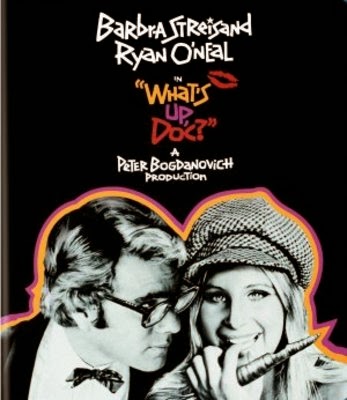Joseph L. Mankiewicz's epic has a reputation for being a gigantic, bloated mess, but it's really only the first of those things. It's a huge undertaking, but it also remembers to be a thoroughly absorbing story. More accurately, it's two absorbing stories separated by an intermission. It feels like a first movie (let's call it "Caesar and Cleopatra") immediately followed by its sequel ("Antony and Cleopatra"). The first half is the superior half, but that's mostly because Rex Harrison's Caesar is a far more interesting character than Richard Burton's Marc Antony. That said, the second half is helped by the eye-poppingly gorgeous battle scenes, and Elizabeth Taylor is magnetic throughout.
This was the second-straight Art Carney movie I watched during my free trial of Warner Instant Archive, and the combination of the two gave me a new respect for him as an actor. Robert Benton's neo-noir came out just two years before Going in Style, but Carney's shaggy middle-aged detective seems like he could be the son of his character in the later movie. I've always known Carney as a comedic actor, but this is largely a serious (if sarcastic role). The same is true of Lily Tomlin, who does fine work as Carney's distressed client. Best of all, the movie tells a satisfying mystery story.
Duck, You Sucker! (1971)
The Miracle of Morgan's Creek (1944)
I've been a fan of director Preston Sturges for years, but I'd mostly only seen the films in this DVD box set. I finally got my hands on a copy of Creek. Turns out that it's his best movie I've seen yet. When a small town girl (Betty Hutton) is impregnated by a departing soldier she just met, she turns to the local sap who's been in love with her for years (Eddie Bracken) for help. Her dad gets mad, things get ridiculous, and Bracken is so nervous that it appears he could shake out of his skin at any time. This is the kind of movie that'll make your head spin - the pace never slows down for a minute, and it's exhilarating.
Years after reading Jaime Weinman's intriguing post about Hellzapoppin', I finally looked upon it with my own eyes. I mostly agree with Weinman - after the first ten minutes, it becomes a conventional, moderately amusing Universal comedy in the mold of Abbott & Costello movies. That's fine - and it has Martha Raye, who's terrific - but that first reel is a marvel, one of the funniest sequences I've ever seen on film. Olsen & Johnson wander around a silly "Hell" set from one gag to the next, all the while complaining that they have to star in a typical movie with a story. I can't help but agree with them.
Outside of White Christmas (an annual tradition in my house growing up) and his episode of The Muppet Show, Danny Kaye has been a big blind spot for me. The Court Jester makes me want to change that. Every single thing about this movie works - it's laugh-out-loud funny, it's a rousing adventure, the songs are memorable (particularly the opening number, "Life Could Not Better Be," which has been in my head ever since), and the actors are all perfectly cast. I don't have children yet, but if I ever do, I'm going to make sure they see this long before their late 20s.






























